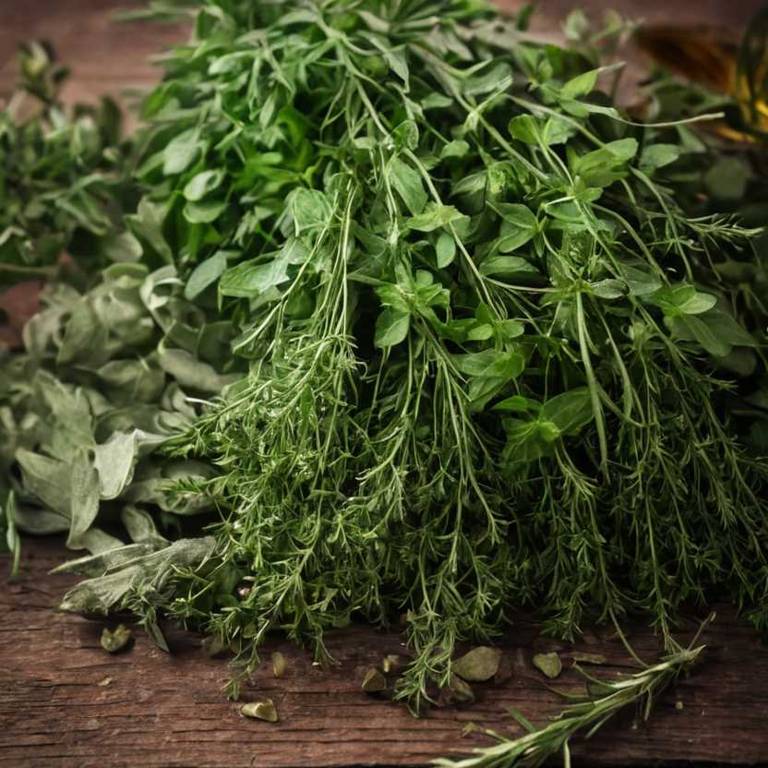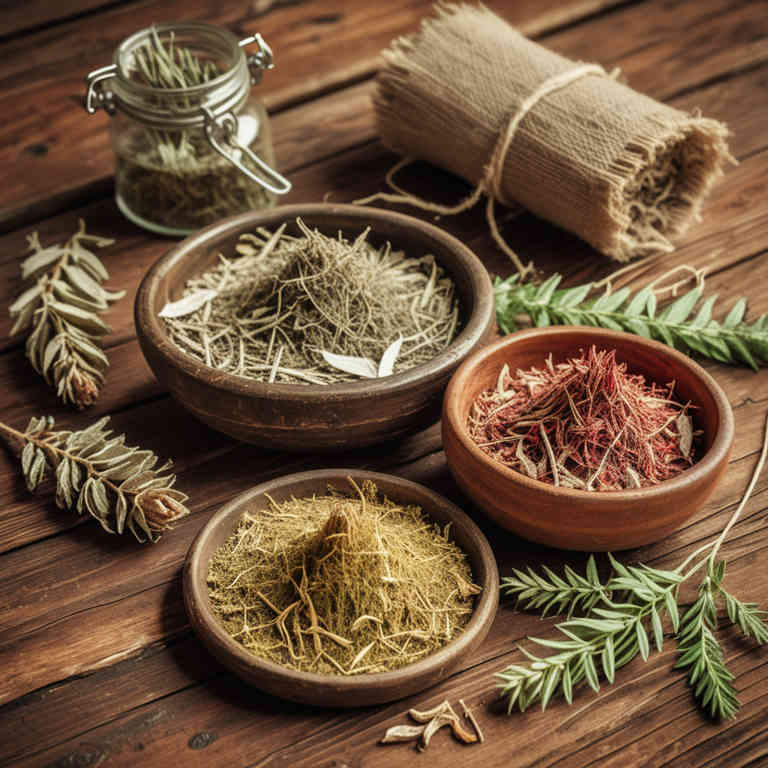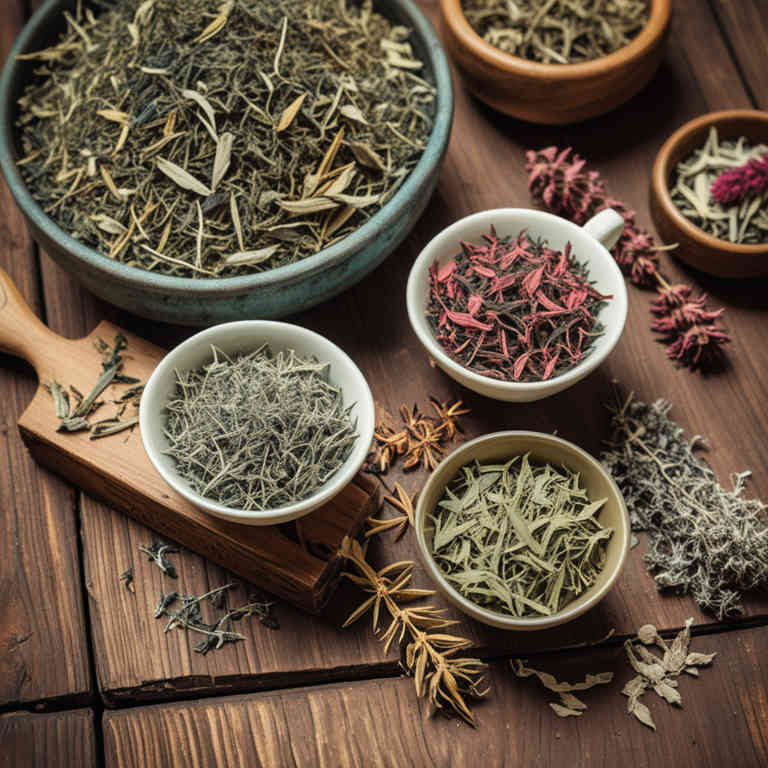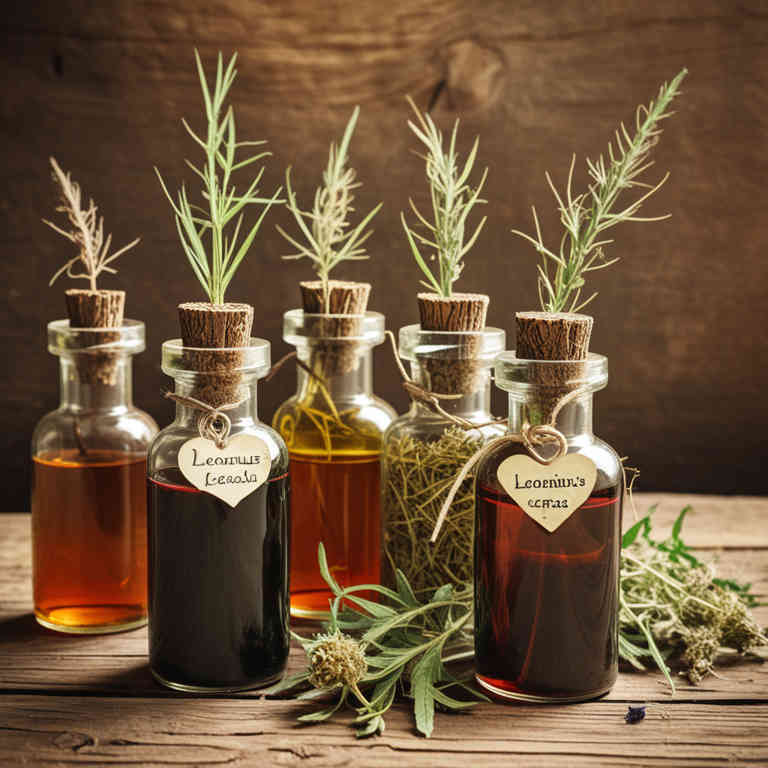10 Best Leonurus Cardiaca Preparations

The best medicinal preparations of Leonurus cardiaca are decoctions, teas, tinctures, capsules, and oils, each offering unique benefits for health support.
Decoctions involve simmering the dried herb in water to extract its active compounds, while teas are made by steeping the leaves or flowers in hot water.
Tinctures provide a concentrated form of the herb in alcohol, enhancing bioavailability.
Capsules offer a convenient and standardized way to consume the herb, and oils are used for topical application to promote skin health and circulation.
These preparations have been traditionally used to support cardiovascular health and reduce stress.
Below there's a list of the 10 best herbal preparations of leonurus cardiaca for medicinal purposes.
- 1. Decoctions
- 2. Teas
- 3. Tinctures
- 4. Capsules
- 5. Oils
- 6. Syrups
- 7. Mucillages
- 8. Oinments
- 9. Liniments
- 10. Poultices
1. Decoctions
Leonurus cardiaca decoctions is commonly used to treat cardiovascular conditions, including heart palpitations, arrhythmias, and hypertension.
This herbal preparation is also used to alleviate symptoms of anxiety, insomnia, and nervous exhaustion due to its calming effects. The most common medicinal uses of Leonurus cardiaca decoctions include supporting heart health, reducing stress-related disorders, and promoting relaxation. The bioactive constituents responsible for these effects include flavonoids, saponins, alkaloids, and essential oils, which contribute to its antioxidant, anti-inflammatory, and sedative properties.
These compounds work synergistically to enhance circulatory function and modulate the nervous system.

2. Teas
Leonurus cardiaca teas is commonly used to support cardiovascular health, alleviate symptoms of anxiety, and promote relaxation.
This herbal preparation is often used to treat ailments such as palpitations, high blood pressure, and nervous disorders. It is also believed to aid in improving circulation and reducing stress-related conditions. The bioactive constituents responsible for its medicinal properties include flavonoids, tannins, and volatile oils, which contribute to its calming and heart-supporting effects.
These compounds work synergistically to provide the plant's therapeutic benefits.

3. Tinctures
Leonurus cardiaca tinctures is commonly used to support cardiovascular health, alleviate symptoms of anxiety, and promote relaxation.
These preparations are frequently employed to treat ailments such as hypertension, palpitations, and nervous disorders. The bioactive constituents responsible for these effects include flavonoids, saponins, and volatile oils, which contribute to its calming and circulatory benefits. Additionally, the herb contains tannins and phenolic compounds that may support overall well-being.
Its traditional use in herbal medicine highlights its role in balancing the nervous and cardiovascular systems.

4. Capsules
Leonurus cardiaca capsules is commonly used to support cardiovascular health, alleviate symptoms of anxiety, and promote relaxation.
They are often prescribed for conditions such as hypertension, heart palpitations, and mild anxiety disorders. The herb is also used to improve circulation and reduce stress-related symptoms. The bioactive constituents include flavonoids, iridoids, tannins, and volatile oils, which contribute to its antioxidant, anti-inflammatory, and sedative effects.
These compounds work synergistically to enhance the herb's therapeutic properties.

5. Oils
Leonurus cardiaca oils is commonly used to treat cardiovascular conditions, such as hypertension and heart palpitations, due to its purported ability to support heart function.
This herbal preparation is also used for its calming effects, helping to alleviate anxiety and promote relaxation. The most common medicinal uses include treating circulatory disorders, nervous system imbalances, and respiratory issues like asthma. The bioactive constituents responsible for these effects include flavonoids, tannins, and essential oils, which have antioxidant, anti-inflammatory, and vasodilatory properties.
These compounds contribute to its ability to improve blood flow and support overall cardiac health.

6. Syrups
Leonurus cardiaca syrups is commonly used to support cardiovascular health and treat conditions such as hypertension, heart palpitations, and mild circulatory disorders.
This herbal preparation is also used to alleviate symptoms of anxiety and insomnia due to its calming effects on the nervous system. The most common medicinal uses include managing stress-related conditions, improving sleep quality, and supporting overall heart function. The bioactive constituents responsible for these effects include flavonoids, tannins, and saponins, which have antioxidant, anti-inflammatory, and mild sedative properties.
These compounds work synergistically to promote relaxation and enhance cardiovascular well-being.

7. Mucillages
Leonurus cardiaca mucillages is commonly used to support cardiovascular health and promote circulation.
This herbal preparation is frequently employed to treat ailments such as hypertension, arrhythmia, and peripheral vascular diseases. It is also used in traditional medicine to alleviate symptoms of fatigue and enhance overall vitality. The bioactive constituents responsible for its medicinal properties include saponins, flavonoids, and mucilage polysaccharides, which exhibit anti-inflammatory, antioxidant, and cardioprotective effects.
These compounds contribute to its ability to improve blood flow and strengthen heart function.

8. Oinments
Leonurus cardiaca oinments is commonly used to treat cardiovascular conditions, such as hypertension and arrhythmia, as well as for their calming and sedative effects.
These oinments are also applied topically to reduce inflammation and pain associated with skin conditions and musculoskeletal disorders. The most common medicinal uses include alleviating symptoms of heart-related ailments and promoting relaxation. The bioactive constituents responsible for these effects include flavonoids, saponins, and alkaloids, which contribute to its cardiovascular and anti-inflammatory properties.
Additionally, the presence of volatile oils and tannins enhances its therapeutic value in both topical and systemic applications.

9. Liniments
Leonurus cardiaca liniments is commonly used to treat ailments related to the circulatory system, such as poor circulation, varicose veins, and peripheral neuropathy.
These liniments are also applied topically to alleviate muscle pain, inflammation, and skin conditions like eczema or psoriasis. The bioactive constituents responsible for these medicinal effects include flavonoids, tannins, and essential oils, which possess anti-inflammatory, antispasmodic, and circulatory stimulant properties. Additionally, the plant contains compounds that may enhance blood flow and reduce oxidative stress in the body.
Due to its traditional use and potential therapeutic benefits, Leonurus cardiaca liniments remain a valued herbal remedy in alternative medicine.

10. Poultices
Leonurus cardiaca poultices is commonly used to treat wounds, inflammation, and circulatory disorders.
The plant, also known as heart herb, has been traditionally applied to reduce swelling and promote healing in skin conditions such as eczema and abscesses. It is also used to alleviate symptoms of varicose veins and other circulatory issues. The bioactive constituents responsible for its medicinal properties include tannins, flavonoids, and iridoids, which have anti-inflammatory, astringent, and vasodilatory effects.
These compounds contribute to its ability to soothe pain, reduce infection risk, and improve blood flow.
